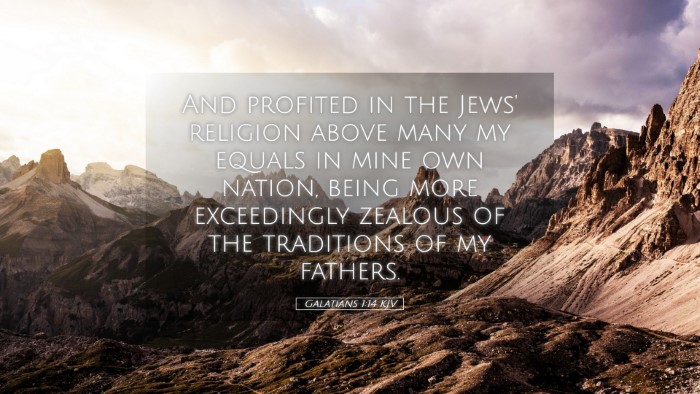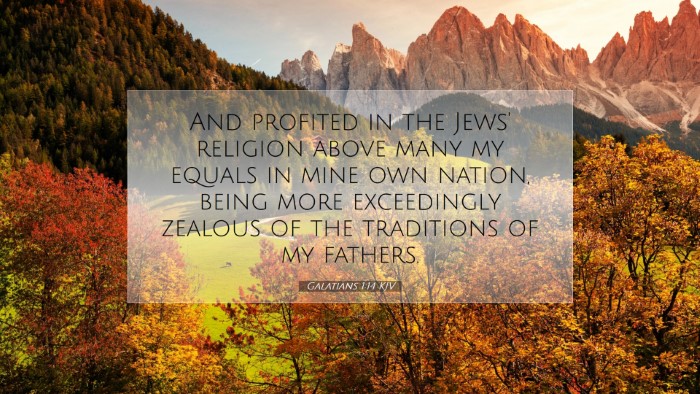Old Testament
Genesis Exodus Leviticus Numbers Deuteronomy Joshua Judges Ruth 1 Samuel 2 Samuel 1 Kings 2 Kings 1 Chronicles 2 Chronicles Ezra Nehemiah Esther Job Psalms Proverbs Ecclesiastes Song of Solomon Isaiah Jeremiah Lamentations Ezekiel Daniel Hosea Joel Amos Obadiah Jonah Micah Nahum Habakkuk Zephaniah Haggai Zechariah MalachiVerse
Galatians 1:1 Galatians 1:2 Galatians 1:3 Galatians 1:4 Galatians 1:5 Galatians 1:6 Galatians 1:7 Galatians 1:8 Galatians 1:9 Galatians 1:10 Galatians 1:11 Galatians 1:12 Galatians 1:13 Galatians 1:14 Galatians 1:15 Galatians 1:16 Galatians 1:17 Galatians 1:18 Galatians 1:19 Galatians 1:20 Galatians 1:21 Galatians 1:22 Galatians 1:23 Galatians 1:24

